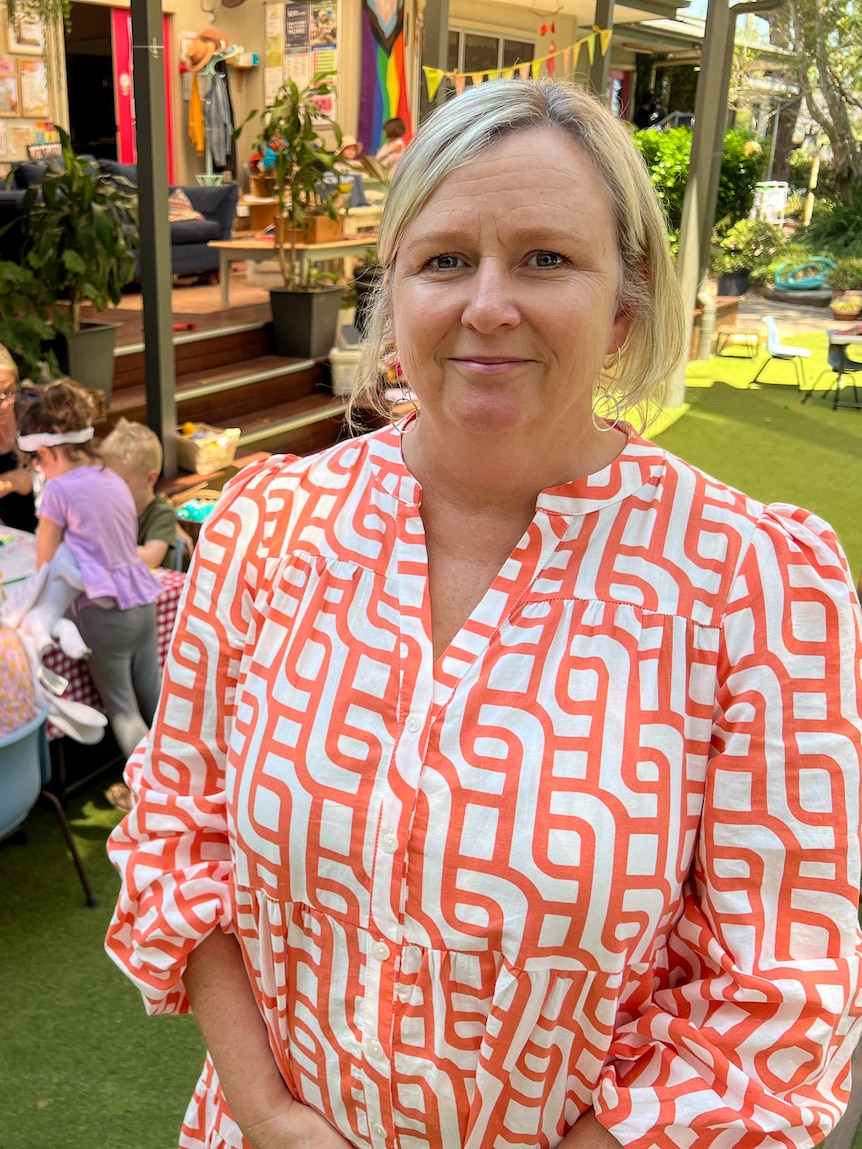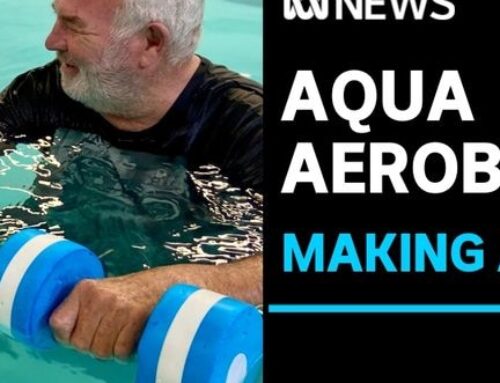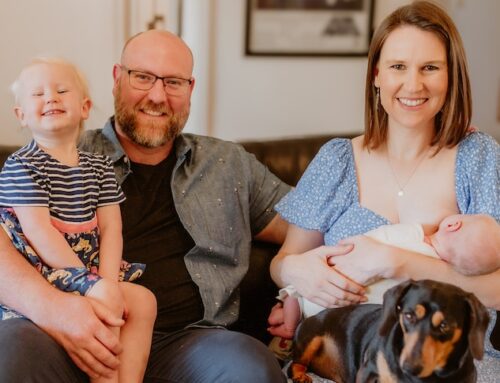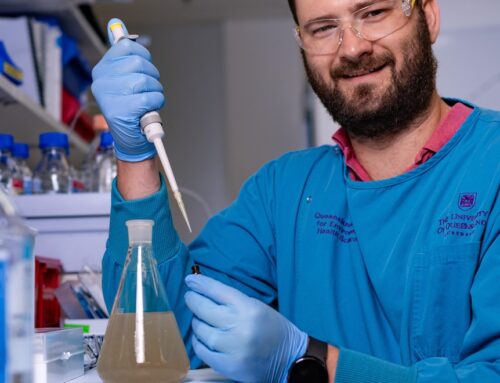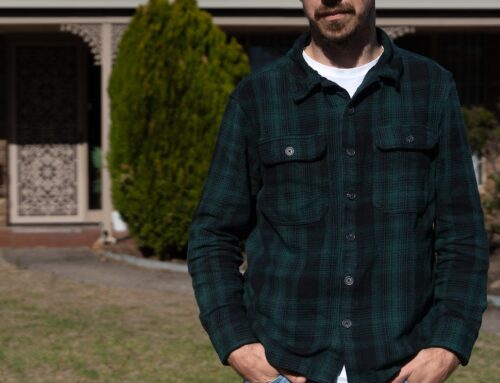Surrounded by the eucalypt forest of the Blue Mountains, nature and weather are a daily consideration at the Blaxland Preschool.
Key points:
- Educators say having open conversations about emergency planning can help support children
- They say listening to their ideas gives them agency and reassurance
- A new online toolkit for families and educators launched by the ABC can assist those talks
“How ‘s the bush looking at the moment, the bushland near your houses?” director Dee Wilde asks a group of children sitting in a circle.
“Very, very dry,” one of them replies.
A girl named Mary then explains the fire danger rating system.
“The green one means it’s OK,” she says.
Another child called Sasha then produces her family’s laminated bushfire plan.
“We get our favourite toys, like my sister’s bunny that she likes, and bring them,” she says.
The group moves outside and starts to draw and colour in a large mind map. The conversations are free-flowing and led by the children.
“The fire trail is where the fire brigade can drive down,” one of the boys says.
Experts say the times when children were sheltered from discussions about emergencies and disasters are over. A newly developed toolkit will help have these conversations age-appropriately as the emergency season looms.
“Children do pick up a lot of what’s happening around them,” Ms Wilde says.
“They’re hearing the conversations, they’re listening to things on the car radio.”
Fires leave lasting impression
The Black Summer fires are still fresh in the minds of the Blaxland community.
“When the 2019, 2020 bushfires were happening here in the mountains, it was very confronting for a lot of families,” Ms Wilde recalls.
“Everybody was very hyper-aware, so children would have been exposed to a lot of that.”
Maintaining strong relationships, and taking time to listen to a child’s ideas, she says, can help reassure them during emergency season.
“So when they do bring things up, we can respond to their questions and to their concerns, and make sure that they feel safe,” Ms Wilde says.
The 1983 Ash Wednesday bushfires in Victoria and South Australia were career-defining for Michelle Roberts.
Loading…
She was a new teacher at a school in the Macedon Ranges north of Melbourne, where several people had died.
“I continue to reflect on it even 40 years after Ash Wednesday, how the expectation was the kids would just get back into a routine,” Ms Roberts says.
“Some of them had lost homes and family and had seen devastating, horrific events.”
Unsurprisingly, following the fires, her students found it hard to concentrate and were “jumpy” on hot, windy days.
“Back in 83, there was almost an expectation that kids didn’t notice what was going on, or that they would just get on with things,” Ms Roberts says.
“There wasn’t a lot of psychological support at that stage.”
From teaching, Ms Roberts went on to become a child psychologist, specialising in child and adolescent trauma.
Talking to kids on their level
Since the 1980s, the idea that children should be protected from difficult discussions has changed.
“That ‘be seen and not heard’ sort of mentality I’m hoping is in the past,” Ms Roberts says.
“You can have the open conversations,” she says
But it was also important to factor in a child’s developmental level.
“I think a lot of adults are really frightened of doing harm, destabilising their kids,” Ms Roberts says.
“But we know that going down the pathway in your own mind, and having your plan helps you make good decisions in the heat of the moment.”
Loading…
Free resource for parents, educators
To better support and prepare children for the emergency season, ABC Kids Early Education has launched the Helping Hands: Disaster Resilience Early Education Tool Kit as a curriculum planning resource.
“Over the last five years, if you think of where our preschoolers are up to now, they’ve lived through big bushfires and pandemic times and big floods, severe storms,” the ABC’s Laura Stone says.
“These kinds of events do impact communities in a big way and children are such an important part of our community.”
Ms Stone is a former early educator and spearheaded the toolkit, which collates audio-visual content and other resources for early educators and families.
“We look at the ways that good-quality children’s media can be helpful as a proactive way to support children,” she says.
The freely available toolkit was created in partnership with the Australian Institute for Disaster Resilience (AIDR) and includes material from the Red Cross and Emerging Minds as well as the ABC.
“It helps to put everything under one easily accessible umbrella on the ABC Kids website, and it’s there all the time for people to dip into whenever they need,” Ms Stone says.

